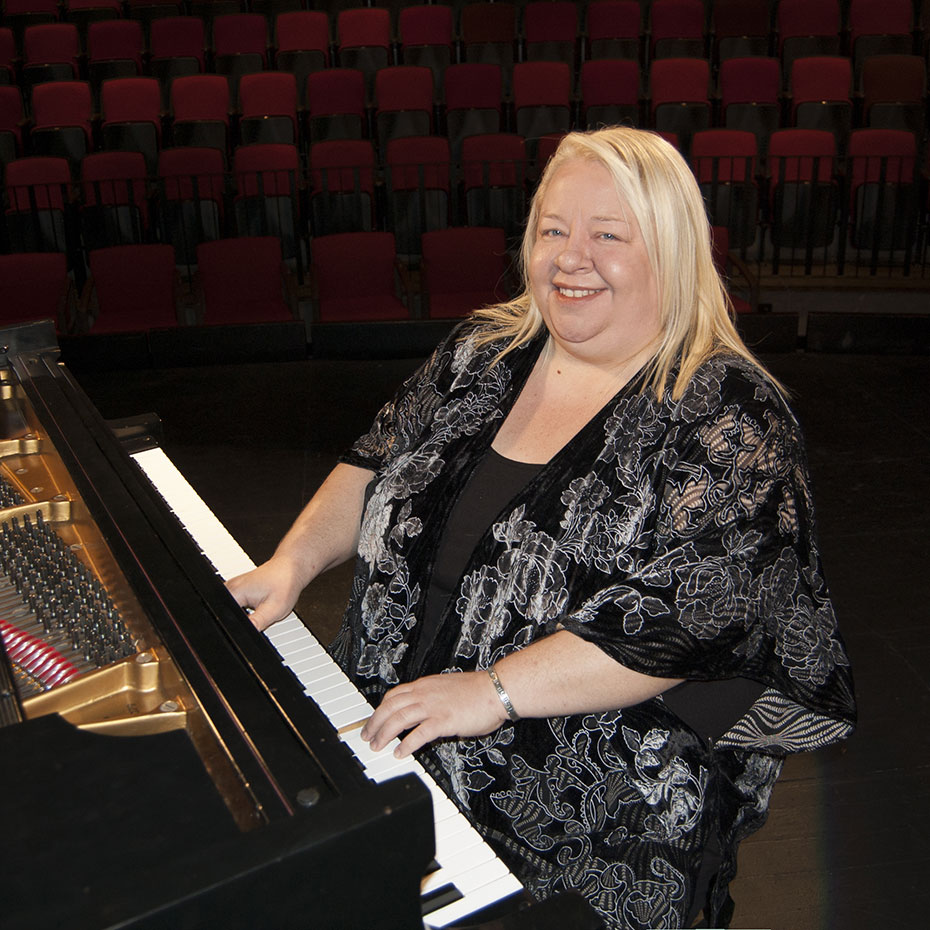by Daniel Hathaway
Shuai Wang will be featured in No Exit’s “Piano Dada” at Kent State, the Baldwin Wallace Men’s Chorus sings at St. John’s Cathedral, CityMusic Cleveland moves “Rediscovered Classics” to Lakewood Congregational, pianist Jackie Warren (pictured) celebrates the centennial of Gershwin’s Rhapsody in Blue with Cleveland Jazz Orchestra at the Maltz, and Oberlin Opera Theater continues its run of Claudio Monteverdi’s 1605 L’Orfeo in Hall Auditorium.
For details, visit our Concert Listings.
NEWS BRIEFS:
Esa-Pekka Salonen announced on Thursday that he would step down as music director of the San Francisco Symphony when his contract expires next year.
Javier C. Hernández reported in the New York Times that “Salonen, 65, a groundbreaking conductor who has promoted new music and experimented with virtual reality and artificial intelligence, said he no longer saw a path forward.
“‘I have decided not to continue as music director of the San Francisco Symphony because I do not share the same goals for the future of the institution as the Board of Governors does,” he said in a statement. “I am sincerely looking forward to the many exciting programs we have planned for my final season as music director, and am proud to continue working with the world-class musicians of the San Francisco Symphony.’”
TODAY’S ALMANAC:
by Jarrett Hoffman

In fact, her chronic illness played a part in her intense pursuit of a career in composition. In The Life and Works of Lili Boulanger, Léonie Rosenstiel writes that composing
provided Lili with the means to decide her own future as much as possible, and to show her family, her friends, and, above all, herself, that she was capable of being considered a contributing member of the artistic and intellectual community in which she lived. In other words, it gave Lili the chance to develop a positive self-image…Lili’s physical dependence on others, especially her immediate family and their servants, was often total, but she enjoyed complete intellectual and artistic autonomy.
Illness forced her to withdraw the first time she entered the Prix de Rome. A year later, at age 19, she won for her cantata Faust et Hélène, bringing her a contract with an important publisher — meaning a steady income, and a platform on which to grow her career.
By the time of her death five years later, her output numbered over 50 works. Perhaps most famous is her Psalm 24, as Daniel Hathaway noted in a Diary entry on August 21, the anniversary of Boulanger’s birth.
Another standout is the haunting and beautiful Pie Jesu. Listen to a spectacular performance here by Paul Jacobs and Christine Brewer in an arrangement for organ and soprano — four minutes of haunting yet subtle music to give you goosebumps of the soul.




